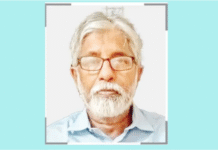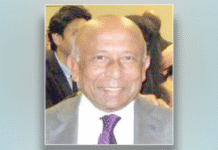
We have no words to describe the disgust and outrage we feel at the video of a woman stripped, gang-raped, beaten and tortured in Noakhali, shared by the perpetrators themselves on social media, to humiliate and further dehumanise a person begging for mercy. We will not delve into sensationalist details of the video here; suffice to say, it brought to the fore not only the brutality of the perpetrators, but also their audacity in making this act public, confident that they would get away with it, no matter who saw the video. It speaks volumes about the impunity enjoyed by rapists in the country, and the encouragement such impunity provides to would-be rapists.
Rapists in this country get away with such viciousness and violence every day of the year, while victims and survivors are left to deal with the trauma on their own, fighting deeply entrenched patriarchal norms and institutions every step of the way. The long, protracted legal battles, if and when women make the difficult decision to go through with them, end in more cruelty—with only three percent of perpetrators being convicted for rape. Men, in particular those associated with gangs and political parties, seem to consider sexual violence against women and marginalised communities as a sport or as their birthright, and in an overwhelming majority of incidents, are protected by those in positions of power, an inefficient law enforcement mechanism and/or antiquated laws. Even when they are arrested, most get out on bail after a few months.
With 975 reported instances of rapes between January and September 2020—one can only imagine how much higher the real numbers are—the question that we really need to ask, not just of the state but of all of us, is: for how long are we going to continue to let this happen? It is evident that these rapes, each gorier than the last, are not isolated incidents, but part of the broader rape and patriarchal culture which legitimises systemic violence against women and girls though numerous social and political institutions, including the media.
Arrests of the perpetrators is a first and crucial step, but it is certainly not enough. If we are to stop such rapes from happening, and end impunity for sexual violence, we need to overhaul the existing structures in place through a coordinated and sustained movement of all stakeholders—not just women’s rights activists, but also all other civil society allies, students, political parties, journalists, writers and workers. We must weed out the rapists in our midst—in our families, communities and parties. We urge our parliamentarians, and our Prime Minister in particular, to join, albeit lead, this movement for change, from the family to the state level.
All of us have been silent for too long. Impunity for rape must stop, and it must stop now.









